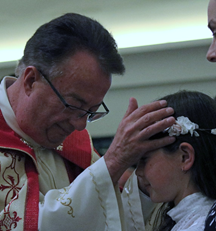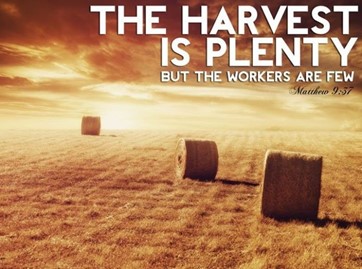What a mess! Poor Fellow My Country. Today is not a day for reckoning about any big policy issues, because none of them was in play when members of the Liberal Party cast their votes in the party room.
And the reckoning on issues like climate change, energy policy, tax reform, school funding, the NDIS, migration and population policy, Indigenous constitutional recognition, multiculturalism and freedom of religion requires a functioning parliament and party rooms where deliberation and compromise within the contours of the various party philosophies are possible. To start the policy reckoning for the good of the country, the rules of political engagement need to be clear. And perfidy needs to be punished.
Important issues seem to fade in significance, not only in Australia but also globally. There appears to be a political destablisation of what has historically been the norm. I think this also to be the case in our Catholic Church. We are living through one of those great periods of change or as I have said previously a ‘change in an era’, which can leave us feeling hollow, if not troubled.
And yet over the past five weeks, we have been listening to chapter 6 from John’s Gospel about the bread of life. The people who hung around Jesus had difficulty comprehending his teachings, about being the holy one of God. I see this struggle and disbelief when I am in church and ‘guests’ come to celebrate the sacraments of a family member.
 Two of our granddaughters were confirmed on the Gold Coast on Friday night. The children were most attentive and very excited. It was powerful when the celebrant laid his hands on each candidate’s head, and then anointed them with the oil of Chrism. As I looked around there were some who participated fully in the ceremony, while others looked bewildered. Our two granddaughters were filled with the gifts and fruits of the Spirit, they glowed with God’s presence. Our sacraments are so important because through them we bring God’s reality to life, we make God real and tangible.
Two of our granddaughters were confirmed on the Gold Coast on Friday night. The children were most attentive and very excited. It was powerful when the celebrant laid his hands on each candidate’s head, and then anointed them with the oil of Chrism. As I looked around there were some who participated fully in the ceremony, while others looked bewildered. Our two granddaughters were filled with the gifts and fruits of the Spirit, they glowed with God’s presence. Our sacraments are so important because through them we bring God’s reality to life, we make God real and tangible.
On Wednesday July 25 Richard Rohr was writing about Eucharist. He called this Daily Meditation – The Christian Mime. I share this with you because our discourse from John about Jesus the Bread of Life finished this weekend.
At his last supper, which might also have been the Jewish Passover meal, Jesus gave us an action, a mime, a sacred ritual for his community that would summarize his core and lasting message for the world—one to keep repeating until his return to hold the group and teaching together. This deep message was to slowly sink in until “the bride” (those ready for divine intimacy) is fully ready to meet “the bridegroom” (Jesus the Christ) and drink at the eternal wedding feast (see Revelation 21:2 and elsewhere). The wedding banquet is also one of Jesus’ most common metaphors; he even starts his ministry at an intoxicating wedding banquet (John 2:1-11).
 The Eucharistic mime, and that is what it is—a story enacted through motions more than words—has four main aspects that we are to imitate from Jesus’ first enactment (presented in varying ways in Matthew 26:26-28; Mark 14: 22-24; Luke 22:17-20, and another way by Paul in 1 Corinthians 11:23-26). Given that, it is quite strange that we insist on one official wording when it is not even presented that way from the start.
The Eucharistic mime, and that is what it is—a story enacted through motions more than words—has four main aspects that we are to imitate from Jesus’ first enactment (presented in varying ways in Matthew 26:26-28; Mark 14: 22-24; Luke 22:17-20, and another way by Paul in 1 Corinthians 11:23-26). Given that, it is quite strange that we insist on one official wording when it is not even presented that way from the start.
1) You also should take your full life in your hands. In very physical and scandalously incarnational language, table bread is daringly called “my body” and wine is called “my blood.” You are saying a radical “yes” to both the physical universe itself and the bloody suffering of your own life and all the world.
2) You then thank God (eucharisteo in Greek), who is the Origin of all that life and who allows and uses the death that life includes. (During the Eucharistic Prayer, you are reminded of the passion, death, and resurrection of Christ.) You are making a choice for gratitude, abundance, and appreciation for Another, which has the power to radically de-center you. Your life and death are pure gift and must be given away in trust.
3) You choose to break your life and death wide open. You let your life be broken, used up, and you don’t spend your life protecting yourself. In handing over the small self you discover your True Self in God. “Unless the single grain of wheat dies, it remains just a grain of wheat” (John 12:24). The crushed grain and grapes become the broken bread and the intoxicating wine. There is no other way for the transformation to happen.
4) You then chew on this mystery for all the rest of your days! Divine truth is known by participation with and practice of, not by more thinking or discussing or even believing. You eventually have to “eat” the truth more than ever to understand it.
Eucharist is a living mime, done first by Jesus and slowly, ever so slowly, also imitated by us.
We should hold ourselves apart from this meal only if we are not at least willing to try to live this way. That is the only real meaning of it being a “sacrificial meal.” Jesus did it “once and for all” and we are still considering whether we want to join in. It is not moral unworthiness as much as simple unreadiness that might keep us away from the table—and probably, if I were honest, it should have kept me from eating and drinking most days of my life when I had no intention or desire to take, give thanks, break open, and eat.
 So, no wonder I encounter those who are not ready yet to be transformed by the demands of being a Eucharistic people. I am sure people want community but I am not convinced they want to pay the price of being a follower, a disciple. This ongoing conversion takes courage and energy. I think many of those who read this message are probably feeling the weariness of the continual ‘yes’. The harvest is rich, but the laborers are few. I remind you to pray constantly and fervently, and to associate with other disciples who are not despairing. Look around for those signs of hope and cherish these in your heart.
So, no wonder I encounter those who are not ready yet to be transformed by the demands of being a Eucharistic people. I am sure people want community but I am not convinced they want to pay the price of being a follower, a disciple. This ongoing conversion takes courage and energy. I think many of those who read this message are probably feeling the weariness of the continual ‘yes’. The harvest is rich, but the laborers are few. I remind you to pray constantly and fervently, and to associate with other disciples who are not despairing. Look around for those signs of hope and cherish these in your heart.
Just a reminder of our animator training sessions for the Plenary Council/Diocesan Synod process. Anyone and everyone is welcome to come along and to discern their desire or suitability to be an animator. We need to invite many, many people to take part in the Listening and Dialogue process and to feed back to the Plenary Council website. If you don’t participate your voice won’t be heard.
Until next week, take care and say thanks for the rain that has begun to fall.